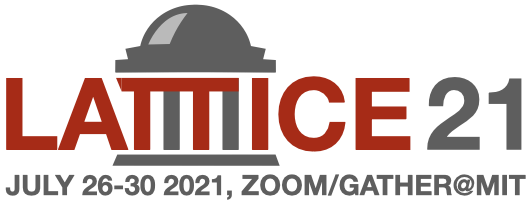Speaker
Description
Algebraic multigrid methods have become state of the art at solving discretizations of the Dirac equation in Lattice QCD, in particular, when systems are ill-conditioned. Lattice QCD is bound by the use of supercomputers to speed up their simulations, where algebraic multigrid methods have brought a way of pushing the computational boundaries at large-scale and they open the possibility of scalably simulating at the exascale.
Unfortunately, under certain extreme situations such as the use of many nodes, and/or very high condition of the linear system to be solved which happens when quark masses are small, coarsest-level solves end up representing most of the execution time of the overall multigrid solves. If the solver employed during coarsest-level solves is e.g. GMRES, in which case we see the appearance of many dot products, scalability is at risk. We therefore take on the task of understanding and improving the scalability of coarsest-level solves.
For this, we merge four techniques into a single solver for coarsest-level computations: block Jacobi, polynomial preconditioning, Krylov recycling and pipelining.
All of our implementations and tests are performed within our solver library DD-alphaAMG, tailored in particular for the twisted mass fermion formulation. Recycling has a great interplay with our solver due to changes in the coarser matrices during the setup phase of the AMG employed by DD-alphaAMG, and the matrix-vector multiplications contain nearest-neighbour communications which gives us the opportunity of better scalability.




